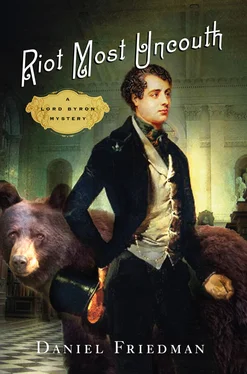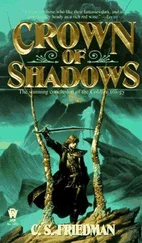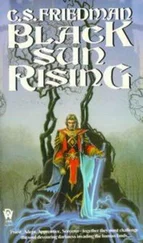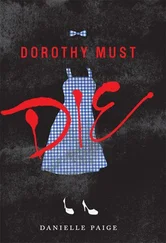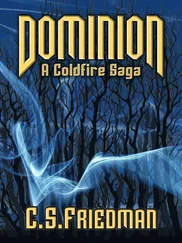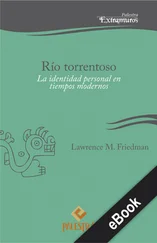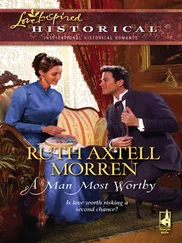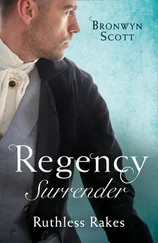Daniel Friedman - Riot Most Uncouth
Здесь есть возможность читать онлайн «Daniel Friedman - Riot Most Uncouth» весь текст электронной книги совершенно бесплатно (целиком полную версию без сокращений). В некоторых случаях можно слушать аудио, скачать через торрент в формате fb2 и присутствует краткое содержание. Год выпуска: 0101, ISBN: 0101, Издательство: St. Martin, Жанр: Исторический детектив, на английском языке. Описание произведения, (предисловие) а так же отзывы посетителей доступны на портале библиотеки ЛибКат.
- Название:Riot Most Uncouth
- Автор:
- Издательство:St. Martin
- Жанр:
- Год:0101
- ISBN:9781250027580
- Рейтинг книги:5 / 5. Голосов: 1
-
Избранное:Добавить в избранное
- Отзывы:
-
Ваша оценка:
- 100
- 1
- 2
- 3
- 4
- 5
Riot Most Uncouth: краткое содержание, описание и аннотация
Предлагаем к чтению аннотацию, описание, краткое содержание или предисловие (зависит от того, что написал сам автор книги «Riot Most Uncouth»). Если вы не нашли необходимую информацию о книге — напишите в комментариях, мы постараемся отыскать её.
Riot Most Uncouth — читать онлайн бесплатно полную книгу (весь текст) целиком
Ниже представлен текст книги, разбитый по страницам. Система сохранения места последней прочитанной страницы, позволяет с удобством читать онлайн бесплатно книгу «Riot Most Uncouth», без необходимости каждый раз заново искать на чём Вы остановились. Поставьте закладку, и сможете в любой момент перейти на страницу, на которой закончили чтение.
Интервал:
Закладка:
Foremost among my concerns is your visitation by Mr. Frederick Burke, who holds himself out as counsel for the Banque Credit Fran c aise. I would urge you to engage in no further communication with Mr. Burke, and to refer him to me if he attempts to speak to you. It is of utmost importance that you refuse to agree to anything he proposes, either verbally or in writing, and that you make no statement admitting any fact he alleges until I’ve had an opportunity to review the matter.
Joe Murray informs me that Mr. Burke claimed I talked to him in London and invited him to deal directly with you in Cambridge. He is lying. I have never been in contact with this man. I suspect that the bar association will not be pleased to hear that he misled you in order to deny you the benefit of counsel’s assistance, and his misconduct may harm his client’s interests, to our substantial benefit.
For the present time, you should pay Mr. Burke no mind, except to avoid him. I will handle this problem for you. The songs they’ll sing of our vengeance will be rollicking, bloody ones, I promise.
Sometime soon, however, we really must have a serious talk about your finances. Your assets should allow you to live out your life richly and idly, if your holdings are well-managed, but if you continue to accrue debts, your future incomes will be lost to interest upon those notes. I know you are cavalier about disregarding my advice, but you ought to pay heed to this warning. Your temperament is not well-suited for poverty.
As to the matter of your recent upbraiding by the faculty, I’m sure you’ve realized that the Fellows are wholly impotent to punish you for your indifference to your studies. Utter disregard for academics is a privilege of and a tradition among men of your class. If you wish, I will draft a sternly-worded missive reminding them of this, but perhaps the prudent course would be to let the matter rest.
That being said, given your literary aspirations, you might do well to avail yourself of the resources at your disposal in Cambridge. I know you view yourself as a wholly-formed master poet, but I still think of you as the child I knew only a few years ago. I know you have suffered from your father’s neglect of his duties toward you, and my occasional attempts to provide helpful guidance are sorry compensation, but I hope you will listen to me.
When we grow older, we regret the arrogance of our younger selves. We regret the opportunities we disdained; the possibilities we rejected. You may think it beneath yourself to take instruction from these bewhiskered dons who wear drab clothing and lead dull, cloistered lives, but they seek only to bestow upon you the benefit of their years of study, and if you neglect your coursework, you’ll find the knowledge readily available to you now may be harder to accrue in the future. I hope you will not allow vanity to impede your progress, or prevent you from realizing your great potential.
Finally, on the matter of these dreadful killings in Cambridge, I have made arrangements for your transportation home to Newstead until that unpleasant matter is resolved. Joe Murray has reported to me that you were visited by thieftakers from London named Fielding Dingle and Archibald Knifing. I have made inquiries regarding these gentlemen; indeed, I expended great effort to deploy messengers to a number of colleagues so that I might find out everything I could about these purported criminal investigators you have gotten mixed up with. What I’ve learned has been quite upsetting. I shall not rest easy until I receive Joe Murray’s confirmation that you are safely en route.
Fielding Dingle is the vilest form of human trash, a man so detested that even the most reprehensible criminals and ruffians refer to him as a “rat.” He’s been twice convicted of burglary, but he finally realized he was too clumsy and stupid to earn a living at that line of work. He now holds himself out as a trained private constable, but I am told that he has little real investigative talent. Instead, he claims to be able to track down criminals and stolen property by maintaining a network of “informants” in the London underworld.
In my experience, scoundrels of the lower orders enjoy stealing and rape above all other things, but, excepting those endeavors, informing upon one another is their favored activity, especially when there is a reward for doing so. Unfortunately for them, such men are often unable to collect the bounties on the heads of their friends because they are, themselves, wanted for various offenses. This creates an opportunity for Dingle.
By refraining from the criminal behavior that is his natural predisposition, he maintains the bare minimum of reputability required to be able to walk into a magistrate’s office without being arrested. As such, he’s able to purchase information from street hoods, and then sell it profitably to London’s rather sorry policing apparatus. Dingle has also been known to accept payment for assisting victims of theft in ransoming their property, a task that is difficult to bungle when he is colluding with the thieves. However, his deductive skills are not held in much esteem; those who know him laughed at the prospect of him hunting a killer.
I have no idea where Lord Whippleby would encounter the likes of Fielding Dingle, but the presence of such an unsavory character indicates some corruption surrounding the Cambridge investigation in much the same way that the presence of maggots indicates that a haunch of meat has gone rotten.
Archibald Knifing inspires more confidence at first glance, but he is the subject of my greatest concern. I forwarded enquiries about both men to various constables, magistrates and barristers who are regularly involved in criminal investigations and prosecutions. While Dingle is a relatively obscure figure, scraping a living at the fringes of society, Knifing is an eminence in his field.
I was particularly interested to learn of a case Knifing famously solved; a series of killings in which female victims were hung by their feet and drained of blood, in much the same manner that I understand the first Cambridge victim was killed. I asked my contacts for more information about the matter, and they provided me with accounts that differed on significant facts.
First of all, there was some dispute as to the location of the events in question. A lawyer I know who defends violent criminals with some regularity believed that the killings occurred in Grimsby, but a traveling magistrate who often hears criminal matters recalled such a trial being held in Chelmsford. There was also some disagreement as to whether the man convicted of the crimes was a miller or a bricklayer.
My colleagues are fastidious, even with their gossip, and they are not likely to get their details mistaken, so I began to suspect that the differences between their accounts of the blood-draining case Knifing was renowned for solving suggested there were, in fact, two distinct events with similar facts.
I was able to contact the judge who presided over the Grimsby case at his home in London. While he could not confirm that there had been a second, similar incident involving Mr. Knifing, he assured me of the location of the trial; there could be no mistake, since he’d never visited Chelmsford.
However, my friend who was certain that the killings had, indeed, occurred in Chelmsford gave me the name of the lawyer who had unsuccessfully represented the accused in that case. It turned out he’d perished from fever some six months ago, but his law partner was able to find notes on the case, and shared with me a few details that were not protected by privilege.
Читать дальшеИнтервал:
Закладка:
Похожие книги на «Riot Most Uncouth»
Представляем Вашему вниманию похожие книги на «Riot Most Uncouth» списком для выбора. Мы отобрали схожую по названию и смыслу литературу в надежде предоставить читателям больше вариантов отыскать новые, интересные, ещё непрочитанные произведения.
Обсуждение, отзывы о книге «Riot Most Uncouth» и просто собственные мнения читателей. Оставьте ваши комментарии, напишите, что Вы думаете о произведении, его смысле или главных героях. Укажите что конкретно понравилось, а что нет, и почему Вы так считаете.
